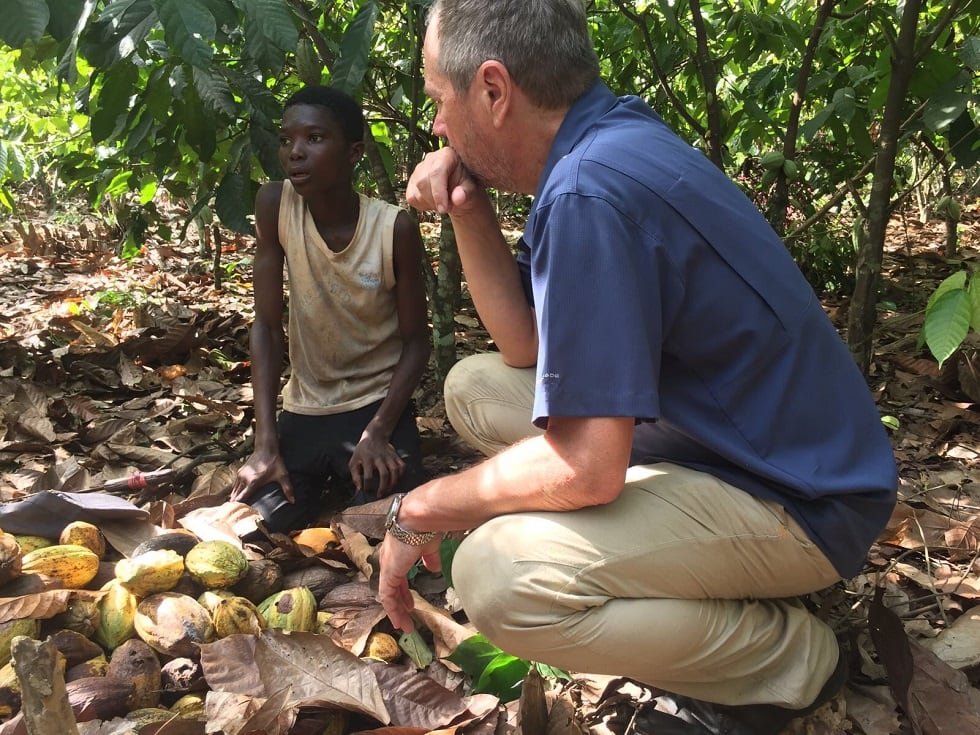The suit, filed by IRAdvocates on the behalf of six former cocoa farmers in 2005, alleged that Nestlé and Cargill ‘aided and abetted’ child slavery under the Alien Tort Statute (ATS) from their corporate offices in the US for many years by knowingly purchasing cocoa harvested by child labors.
These six workers claimed they were kidnapped from Mali, Côte d’Ivoire, as children in 1990s, and were forced to work on local cocoa plantations for up to 14 hours per day, six days per week.
IRAdvocates also noted in the court document that Nestlé and Cargill had been providing funds, supplies, training and other assistance to plantations they knew were using child slaves.
“Nestlé and Cargill, along with most other major cocoa companies, recently admitted that they had failed to meet the deadlines they themselves set to voluntarily stop using child slaves by 2020 in Côte d’Ivoire under the ‘Harkin-Engels’ protocol (aka the Cocoa Protocol),” said Terry Collingsworth, executive director of IRAdvocates.
However, neither of these two companies has set a new deadline so far, and “their admission of not meeting their deadline is necessarily an expression that they are continuing to use child slaves,” he added.
“Assuming there is no further appellate review… [both companies’] executives should soon be testifying under oath about their role in perpetuating child slavery for years.”
Corporate responses
Nestlé and Cargill then issued their separate statements following the court decision.
A spokesperson of Nestlé said: “Forced child labor is unacceptable and has no place in our supply chain. We have explicit policies against it and are working with other stakeholders to combat this global social problem.
“We continue to believe the federal district court got it right when it dismissed this case twice: Once in 2010 and again in March of 2017. Plaintiffs’ counsel should not be given a fourth opportunity to try to manufacture a case against Nestlé USA after having failed to do so for more than a decade.
“We disagree with the ninth circuit’s decision and are assessing our appellate options. Regrettably, in bringing such lawsuits, the plaintiffs’ class action lawyers are targeting the very organizations trying to fight forced labor,” added the spokesperson.
Cargill also noted it has kept its stance that IRAdvocates’ allegations are ‘without merit’ since the case was initially filed.
‘We continue to strongly refute the unsubstantiated claims, as we do not tolerate the use of human trafficking, forced labor or child labor in our operations or supply chains,’ said the company.
‘We are disappointed the Ninth Circuit rejected the district court’s well-reasoned dismissal of the plaintiffs’ claims, and intend to consider all legal options, including appeal, to continue to defend against these unproven allegations.’
However, ‘We will not let these legal proceedings deter us from working actively every day to protect human rights, with an unwavering commitment to treating people with dignity and respect in the workplace and the communities where we do business. We expect our suppliers and partners to stand with us in prioritizing the safety, wellbeing and dignity of all individuals,’ added Cargill.
Mars, IRAdvocates’ next suing target, declined to comment.
Collingsworth told ConfectioneryNews the advocate group’s next lawsuit for human trafficking is “near completion,” and it plans to cover several other chocolate makers once it gathers enough evidence from their supply chains.
He declined to disclose other corporate names in the future case, but agreed to inform ConfectioneryNews before the suit is filed.
“Other companies are justifiably worried and might be wondering why they haven’t been sued yet. Well, they are going to be,” he noted, adding that whoever receives cocoa beans from Côte d’Ivoire is using child labors.
“That’s how endemic the problem is, and I don’t see anyone breaking from the pack and doing something to fix it.”
Blaming International Cocoa Initiative?
Although major chocolate makers are being accused for using child labor, the Swiss-based nonprofit International Cocoa Initiative (ICI), which was formed by these companies in 2002, is the one to blame for delaying in the child slave eradication process, according to Collingsworth.
He alleged that ICI, which is funded by entities including the US Department of Labor, has largely spent its money on things like “palatial” offices and expensive international staff rather than children, who live in endangered communities.
However, the ICI, which has identified 14,986 child labor cases on the cocoa farms in Côte d’Ivoire and Ghana since 2012, found Collingsworth’s allegations ungrounded and are ‘definitely not accurate.’
“Anyone who has visited any of ICI’s offices will attest to the fact that they are far from ‘palatial’,” said Nick Weatherill, executive director at the nonprofit, noting its overhead costs are all publically available in its annual reports.
He said: “Our overhead costs in 2017 represented 14% of our global budget, which is very much in line with the norm for international NGOs working in similar fields. We work hard to keep these overhead costs to a minimum, including by keeping the number of international staff we have as low as possible.
“Our West African operations are proudly run and managed exclusively by national teams of experts (as opposed to international expatriates) who implement and oversee our extensive activities on the ground to deliver the results that we communicate openly and transparently about.
“We do not currently receive funding from ILO (International Labour Organization that is part of the UN), but we do receive funding from the US Department of Labor who scrutinize both ICI’s results and ICI’s costs, ensuring that we do deliver solid outcomes with overheads that are firmly within acceptable and competitive norms,” he added.


